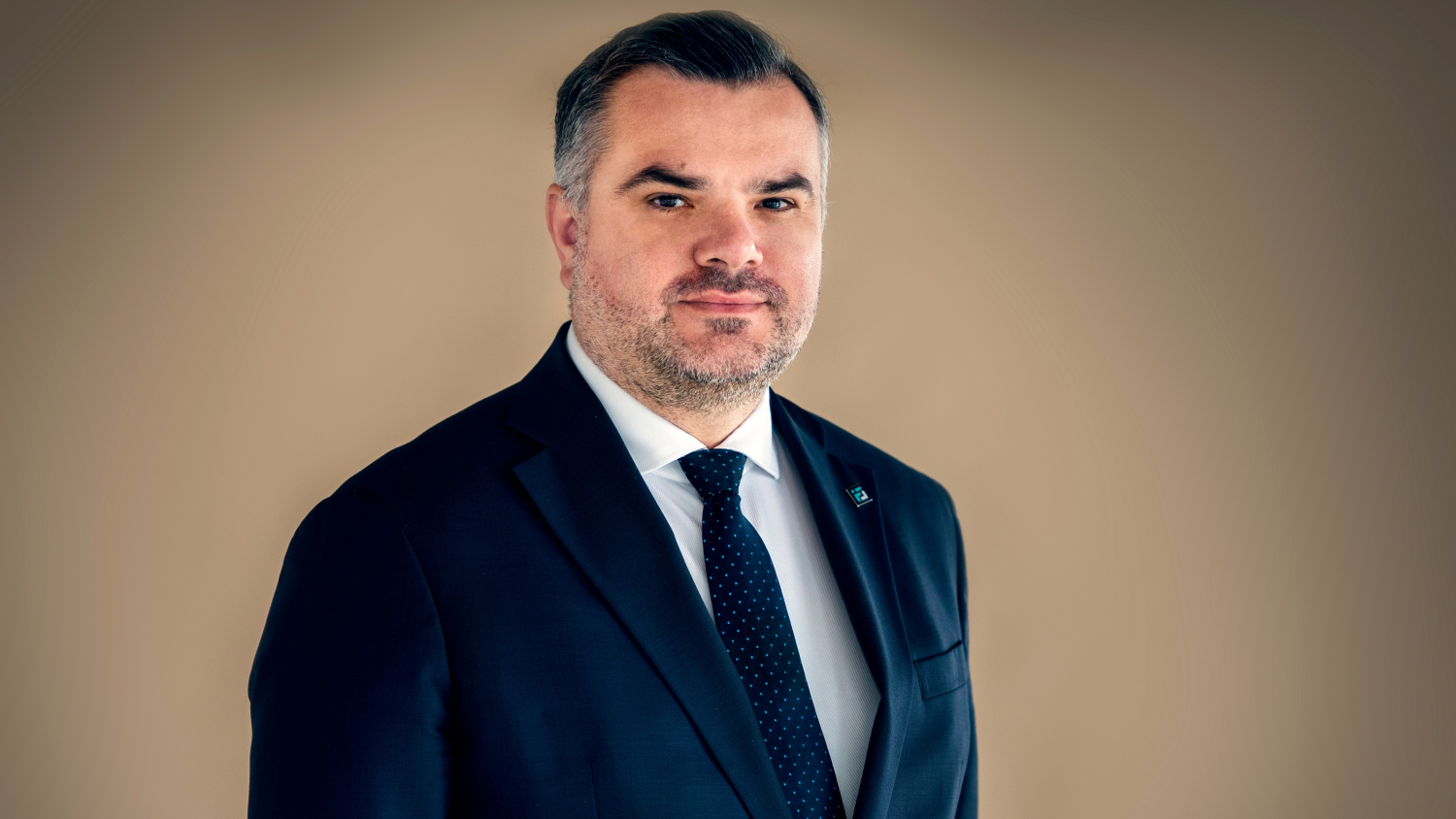
Costin Nistor, Managing Director of Fortim Trusted Advisors, spoke to Property Forum about the real estate agency’s plans for 2023, the outlook for the regional real estate market and the growing role of the ESG agenda for the office and soon the residential sector.
This interview was first published in Property Forum’s annual listing of "The 50 most influential people on Romania’s real estate market”.
What do Fortim Trusted Advisors’ business plans look like in 2023 and which segments do you estimate will ensure the agency’s growth?
In 2023, we will continue to develop our Property Management & Project Management business line, attracting new partners. On the other hand, in addition to the Advisory line, where we have Office, Industrial and Capital Markets departments, we also launched a Residential Services line earlier this year, with Consulting, Marketing and Sales departments. By leveraging these new segments, we expect to grow the company’s revenue by 30% in 2023.
What results have you achieved over the past year and which are some of your project highlights?
In 2022, the company’s revenue increased by 25% compared to 2021. The best performing business line for us was Property Management services. Fortim Trusted Advisors, a member of the BNP Paribas Real Estate Alliance, accelerated its portfolio of offices under Property Management, up 63% in 2022.
Last year, we diversified our range of services, offering under the concept of “One-Stop Shop” a comprehensive and reliable experience. Thus, in addition to the consultancy services for letting space which we offer to landlords for whom we carry out Property Management, we also provided Marketing and Market Repositioning services, as well as Project Management, for complex works such as refurbishment and preparations for the BREEAM in Use Outstanding certification of office buildings.
What are the prospects for the commercial real estate market this year in terms of new investments?
Fewer new offices will open in 2023, deliveries will slow down amid a lack of new investments in 2021-2022 and rising financing costs in the market, including for developers. There is still interest in income-generating commercial properties, however, and this sets the stage for a good year.
What are the real estate niches with high growth potential in other countries in the region that could develop fast in Romania?
The hotel sector in Romania is growing and has good prospects for future development. From 2022 onwards, we see an increasing interest in hotels and other types of accommodation in Bucharest and other cities, as well as in mountain and seaside areas. In 2023, we estimate that at least nine hotels with more than 1,000 rooms will be opened, with most of them in Bucharest, but also in cities such as Timișoara, Sibiu, Brașov, Sinaia and Constanța.
Another niche that will grow will be that of industrial spaces located as close as possible to urban centres, which are needed by e-commerce operators.
Which segments will dominate the Romanian real estate transaction market this year?
Even though in previous periods the office segment has been the top transaction segment, in the immediate future this segment will be under pressure, which we anticipate will reduce investor appetite.
We estimate that office transactions will continue to be the leading but most likely second in terms of transaction volume. At the same time, more retail park developers have stabilized portfolios and by their nature are a more resilient segment in difficult economic times, and we expect they will attract investor interest.
The logistics segment is dominated by logistics park developer-operators, which reduces the volume of tradable products but will probably complete the ranking, followed by the hotel segment.
How important are regional cities for attracting new investors in the medium and long term?
Regional cities such as Iași, Cluj, Timișoara, and Brașov are already on the radar of investors and have generated significant transactions in previous years, but well below the level of Bucharest. Going forward, these cities will attract investors, especially developers who will transform relatively centrally located former industrial platforms into mixed-use projects, with such investments already announced in most major regional cities.
An advantage of regional cities is also the 20-25% lower rents for office space of the same premium quality as in Bucharest. What are the prospects for the office sector given the adoption of hybrid working?
The pressure on this segment comes from cost increases (energy, inflation, interest rates), but also from the continuing “work from home” phenomenon affecting both tenants and landlords.
However, this pressure will be eased somewhat by the much-reduced deliveries planned over the next two to three years.
In Bucharest, the estimated volume of office deliveries for 2024 is low. Will the market be helped by investment in regional cities?
In 2023-2024, cumulatively, outside the capital, the cities of Cluj-Napoca, Iași, Timișoara, Brașov and Craiova will see office buildings come into use with a surface area almost equal to the deliveries in Bucharest. On the other hand, the current stock in these five cities represents about 1 million sqm, about one-fifth of Bucharest’s office stock, which means there is still room for growth. A big advantage of these cities is that they have a large number of students and graduates. For example, according to our data, only Cluj-Napoca, Iași and Brașov have as many students as all the universities in Bucharest.
Our company has a local branch in Cluj-Napoca, where we have two flagship buildings under management – Hexagon Offices and Maestro Business Center, so we know this regional market very well. The office space slated for delivery in Cluj-Napoca will expand the current stock by 20% in 2023-2024, but until then, existing office buildings continue to attract new tenants. Just earlier this year, our company brokered the lease of office space for Emerson in the Maestro Business Center building, for which we also provide property management services.
There is also increased interest from potential office tenants in Brașov, thanks to new office deliveries developed by large international developers.
How important is the ESG component for the lease or sale of office projects?
ESG is starting to make the difference between new office projects and more and more investors and tenants are taking it into account. Big developers with vision are now building with ESG in mind because they know that this adds value to their buildings.
On the other hand, building owners are mostly concerned with “E” - Environmental (reducing operating costs, reducing pollution, protecting the environment, creating green spaces) and “S” - Social (community impact, i.e. creating communities, concern for health, for the disabled). Few owners today also consider “G” - Governance measures, involving Property Management services and transparency of decisions.
We keep a close eye on all these matters and with the help of digitalisation, we provide our Property Management clients with a complete dashboard on the future of ESG. In the next step, the market will move to ESG implementation for new residential housing developments.



